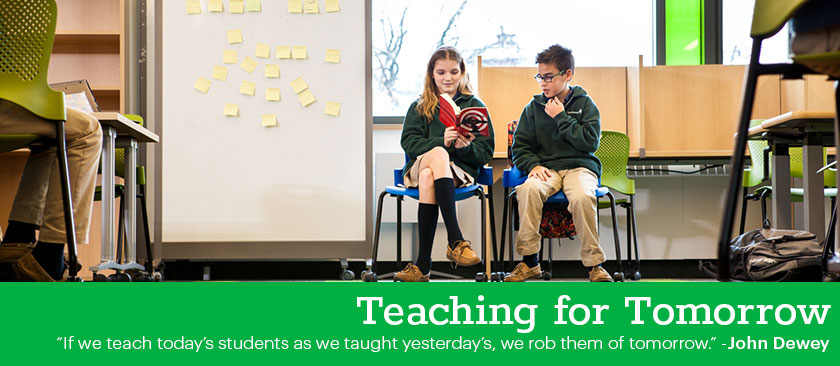For some students it can be daunting to think about potential occupations at this stage of their lives, while others have a clear idea. Nevertheless, one of the main focuses of our unit was to allow students to recognize and appreciate that there are multiple paths one may take while determining and pursuing a career.
To allow students to connect with the unit personally, they completed an exploration activity where they researched and created a presentation on an occupation of interest. Students then completed an interview task, in which they identified possible career paths that interested them and interviewed someone who has had experience in that particular field. Students found the task enlightening, as the interview often exposed more about the career than is found in research alone.
Lastly, to provide students with an opportunity to learn about the various directions a career path can take, they participated in a live international discussion with Justin Lester, the current Deputy Mayor of Wellington, New Zealand. The students were provided with a brief overview of his career path to date and brainstormed questioned to ask him via Skype. The class found it quite astonishing to learn about the various studies, jobs and opportunities Justin had undertaken before becoming the youngest Deputy Mayor of New Zealand's capital city. Justin tried to impress on the students the importance of finding an occupation of interest and continually working toward achieving career goals. He concluded the discussion with an insightful message: to pursue direct and indirect opportunities that will act as stepping stones toward achieving a bigger goal.
Jamie Lester
Teacher, Health & Physical Education, Careers and Civics
